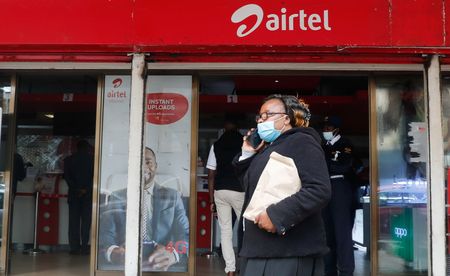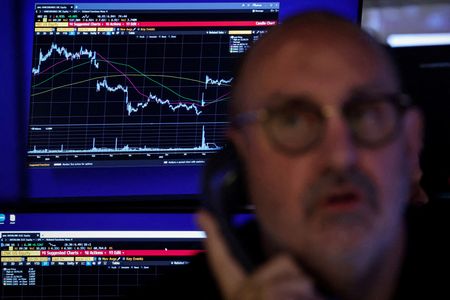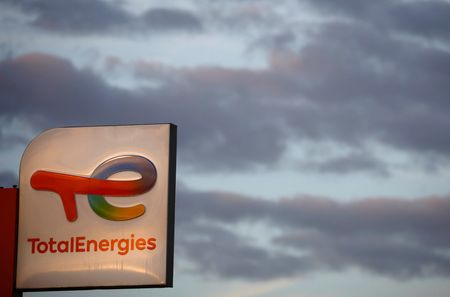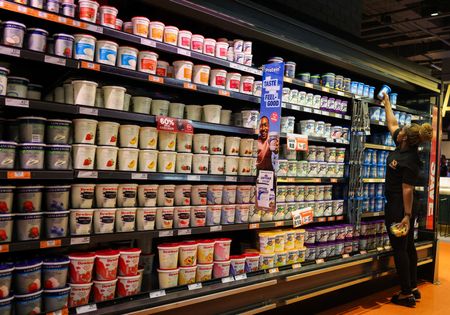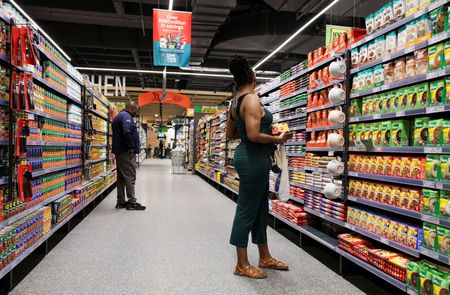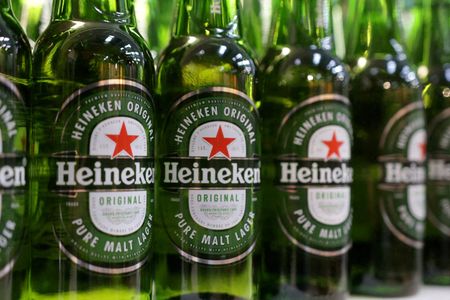By Danilo Masoni
MILAN (Reuters) -Airtel Africa’s stellar FTSE 100 run this year, second only to gold miner Fresnillo, has shone a light on African telecoms, often overlooked by global investors.
A top-two player in each of the 14 African countries in which it operates, including Nigeria, Airtel has been a patient bet for emerging-market specialists.
The Nigerian naira’s stabilisation has been a key driver of Airtel’s 164% share price surge, allowing growth in its data and mobile money businesses to flow to its bottom line.
“You don’t always see these kinds of returns, but the underlying growth was there,” said Harding Loevner portfolio manager Sergey Dubin in New York, who has held Airtel stock for several years. “It just wasn’t showing up in U.S. dollar financials because of depreciating local currencies.”
The naira has appreciated since January to hit 1,447.79 to the dollar. This followed devaluations in 2023 and 2024 that had pushed it as low as 1,690, wiping out Airtel’s double-digit local-currency growth in dollar terms.
In addition, Nigeria allowed price hikes after a 12-year freeze, lifting tariffs by 50% early in 2025. Airtel’s after-tax profit rose nearly fivefold to $376 million in early September.
Crucial to Airtel’s re-rating has been the market pricing in growth of its mobile money arm Airtel Money, which is slated for a separate listing in the first half of 2026.
Airtel Africa – majority controlled by India’s Bharti Airtel – trades at 4.6 times expected core earnings, up from below 3 only four months ago, and is valued at $14.6 billion.
Although shares in other African operators have also rallied, comfortably beating world telecoms, unlike Airtel, they remain below record highs.
Kenya’s Safaricom, which pioneered mobile money in 2007, is up 70% in U.S. dollar terms this year while MTN has more than doubled and Vodacom is up 52%.
IS THERE MORE UPSIDE?
U.S. payments group Mastercard bought a stake in Airtel Money in 2021, valuing the business at $2.65 billion. Two years later, it took a stake in MTN’s money arm.
The deal valued Airtel Money at 9.4 times forward core earnings after leases, said Deutsche Bank analyst John Karidis, who believes the business should be worth at least 13 times – roughly double Airtel’s telecom operations.
“The structural growth prospects of (its) telecom and money markets will remain strong for several years yet,” he wrote this month, lifting his target to 390 pence and marking a 30% upside.
In a continent where much of the population lack access to banks, telecom operators have provided financial lifelines.
Airtel Money processed transactions worth an annualised $193 billion in the second quarter of this year, a rise of 36% and roughly equivalent to Nigeria’s entire GDP.
The investment case extends beyond voice – a slowing revenue stream – to data and mobile money, with low phone penetration and population growth underpinning a long runway.
The number of unique mobile subscribers in Africa and the Middle East is expected to grow 71%, or by some 800 million by 2050, compared with 15% in the rest of the world, consultancy FTI estimates using data from Fitch Solutions’ BMI.
So despite potential currency volatility and regulatory unpredictability, there is more to come in the view of investors such as Dubin, who has slightly trimmed his Airtel Africa stake.
“There’s still upside from the Airtel Money listing,” Dubin told Reuters.
(Reporting by Danilo Masoni; Editing by Amanda Cooper, Karin Strohecker and Alexander Smith)

